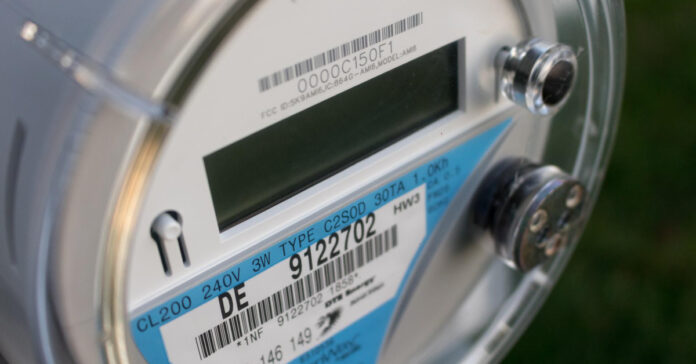
Last month, we consumed 1,000 kilowatts hours (kWh) of electricity, more than our monthly average of 925 kWh. Our consumption was up because we ran the air conditioner quite a bit in August. The good news is our solar panels produced 1140 kWh, giving us a surplus of 140 kWh.
The weather was so sunny, there were days we produced 50 kWh, far more than we needed. Of course, on cloudy days we produced less. At night, or when it rained, we produced nothing, so consumption and production evened out. On our lates bill, which doesn’t exactly align with the calendar, we imported 240 kWh from the grid and exported 283 kWh. Technically, the power company should owe us money, but because of various extraneous charges, taxes, riders and fees, we still had to pay. But thanks to our credits, our bill was only $1.67.
My wife could not believe it. I was hoping for zero or perhaps them owing us money, but I can’t complain about $1.67.
(If you are not sure what a kilowatt hour is, imagine running ten 100-watt incandescent lightbulbs for an hour. Or, imagine using a toaster oven that consumes 2,000 watts for half an hour. Either one would consume one kWh.)
Eliminating Utility Bills
This very low bill is what I consider a proof of concept. It means our solar power system can minimize or reduce our electric bill, saving us $150 to $200 a month. Reducing our monthly costs is part of my long-term survival plan. The solar system will be important in a SHTF situation, but eliminating the bill is also important if we never have a SHTF event and live until we’re 85 or 90.
Right now, we have:
- No water bill because we have a gravity-fed spring as our water source. Ever since we buried the lines in late 2022, the water system has worked flawlessly and we haven’t spent a penny on it.
- No sewer bill because we have a septic system. I spent $400 to have it pumped out this year, four years after we bought the place. While getting your septic tank pumped every three to five years is recommended, the company said we are not stressing our system, because there are only two of us. They said we can go seven to ten years before having it pumped out again. So I’ll call our sewage costs $4 a month.
- No gas bill because we do not use propane or natural gas. Instead, we buy firewood which we burn for heat. I normally spend up to $1,500 a year to buy firewood. I spent less this year because we had wood leftover at the end of last winter and because we cut and split our own. So we spent only about $1,100 this year.
- No house payment, because we own our house. We have to pay property tax, and that’s a bill that is likely to increase every year or two.
We Still have Bills
Some of our other bills are going to be impossible to eliminate. For example:
- A combination of homeowners insurance, car insurance, and health insurance is our largest expense after food. It’s a sad commentary on the American way that insurance is such a hefty annual expense. And this is despite living in an area where our insurance costs are low.
- Between our cell phone plan, Internet access, and a few news and streaming services subscriptions, we spend another $250 a month.
- Food is a huge expense. Between groceries, occasional meals out, pet food, chicken feed, and food for our prepper pantry, I estimate we spend at least $15,000 a year.
Most of these bills can’t be eliminated, so if we end up old and living only on social security, it may tough to pay them. I’m not so worried about what happens in a couple years. I am more concerned about what how bad things could be in fifteen or twenty.
Cutting Costs and Reducing Debt
I have repeatedly said you should pay off your debts and avoid credit cards. Even if you think we won’t have a recession, or worse, this makes sense because it gives you back control of your finances and allows you to save money.
Many people say it is impossible. I was once one of them. I remember using one credit card to pay off another. Once, I refinanced my mortgage to pay off credit card debt and learned first-hand why doing so was a mistake. I didn’t become debt free until I was in my 40s, and it took accepting a new job, selling a house that had appreciated, and moving to a smaller town with a lower cost of living to do so.
If you have ever felt that the deck was stacked against you, that’s because it is. The system is designed to keep you in debt. That’s how big corporations make money. That’s why it is now easier than ever to borrow money. Because that debt becomes their leash. Get out of debt and you throw off the collar and can do your own thing. Like working less.
It’s taken me decades to get to the point where I have no debt and almost no utilities. I say this not to brag but to prove that you can do it. Don’t expect it to happen fast, but if you don’t start working towards it, you will never get there.







$15000 a year on food sounds high to me. I’m spending closer to $5000 annually on food (groceries and restaurants) for myself and a child and we live in an urban area with a plot at the community garden. We only have a cat so the pet and animal food may be where the difference is. I’m just surprised the difference is so large!
You are probably right. If you can get by on $5,000 a year, more power to you.
I was lumping in everything we spend at the grocery store, Walmart and Sam’s Club, plus the general stores where we get our livestock supplies and bee supplies. On top of that, our dog is on a special diet that is $138 for 25 pounds, which is a killer.
Comments are closed.